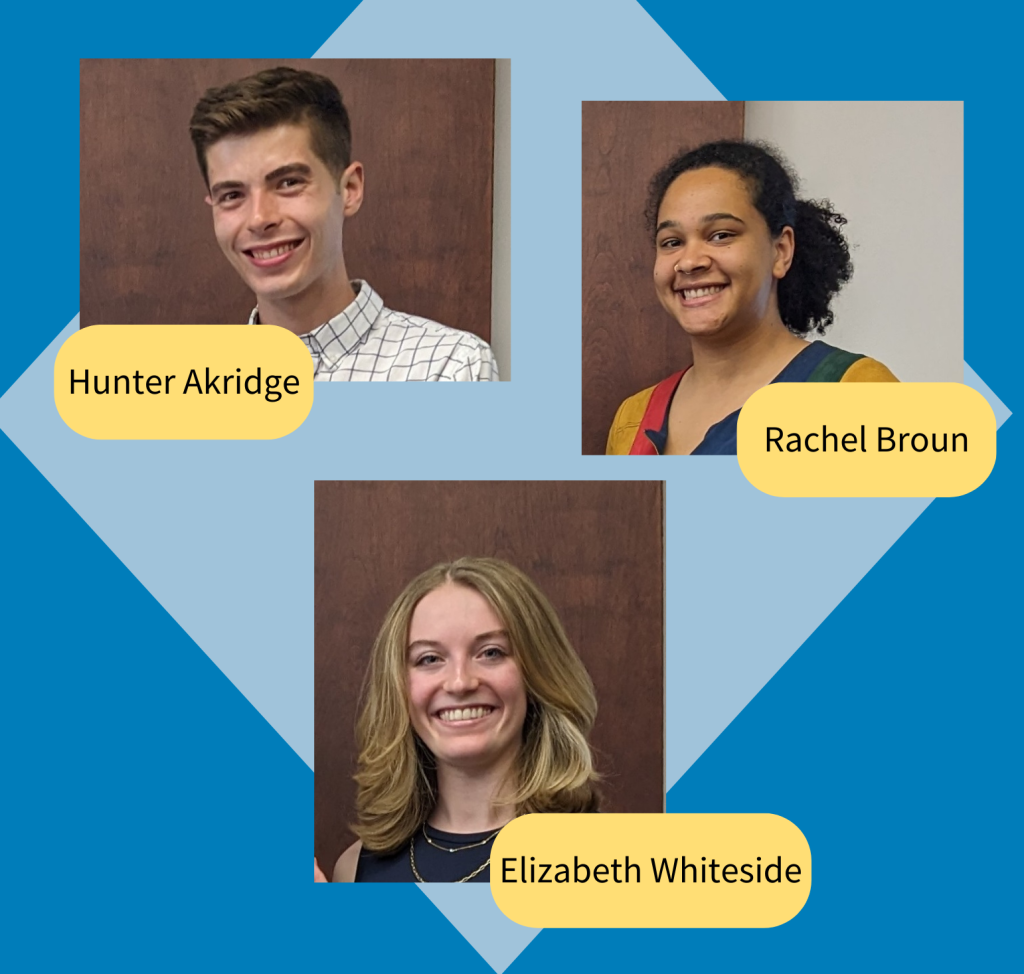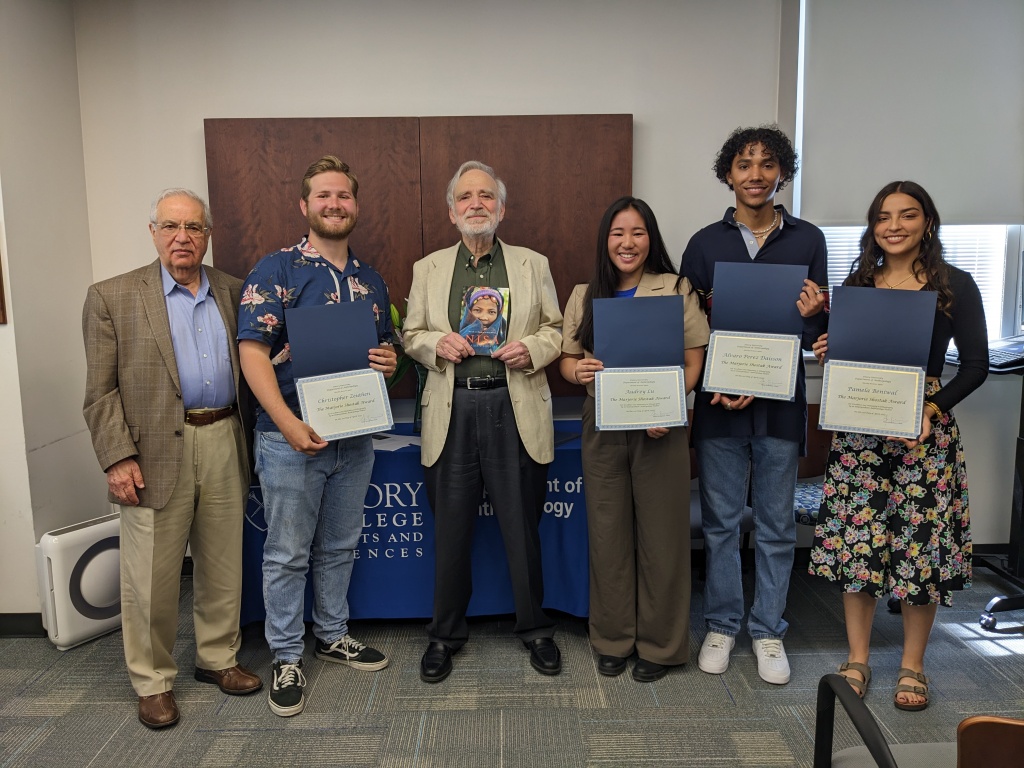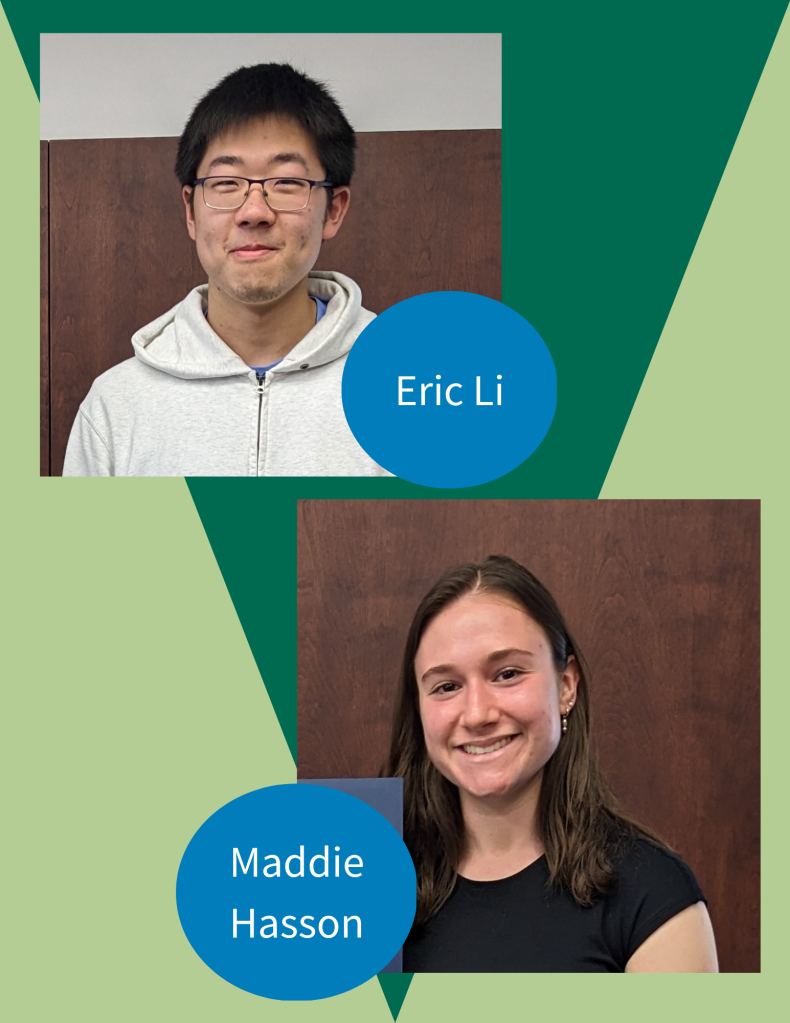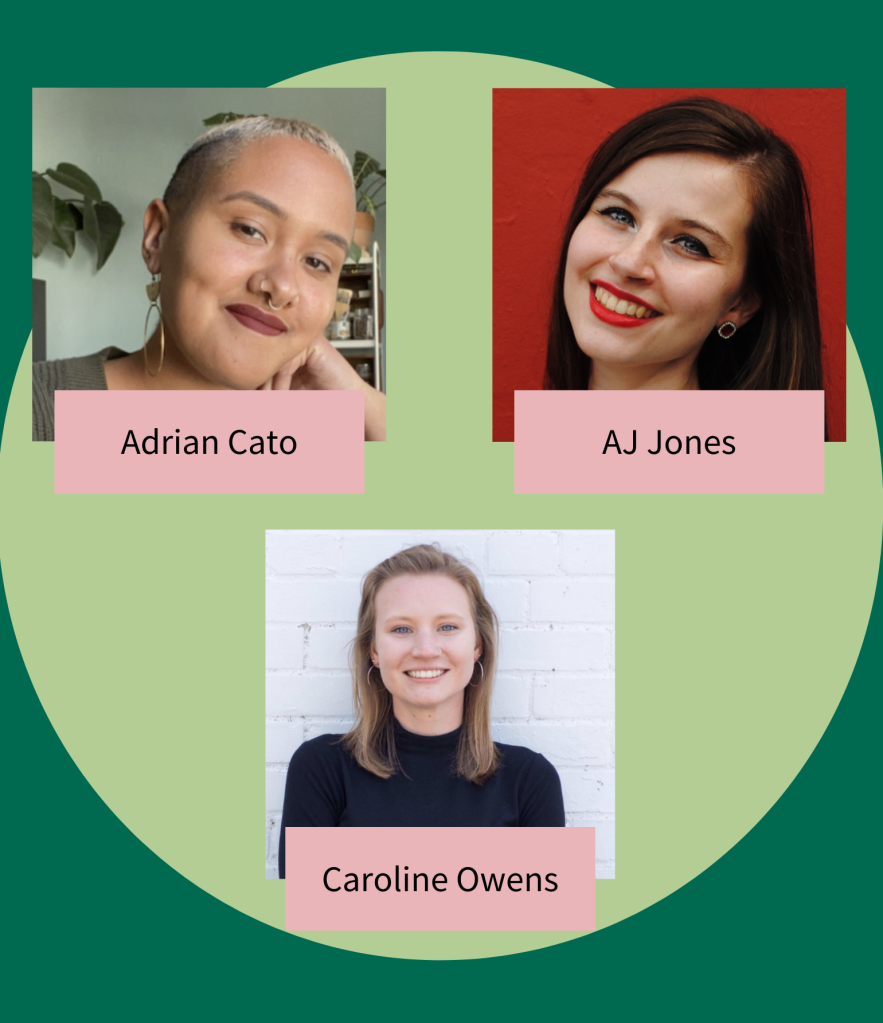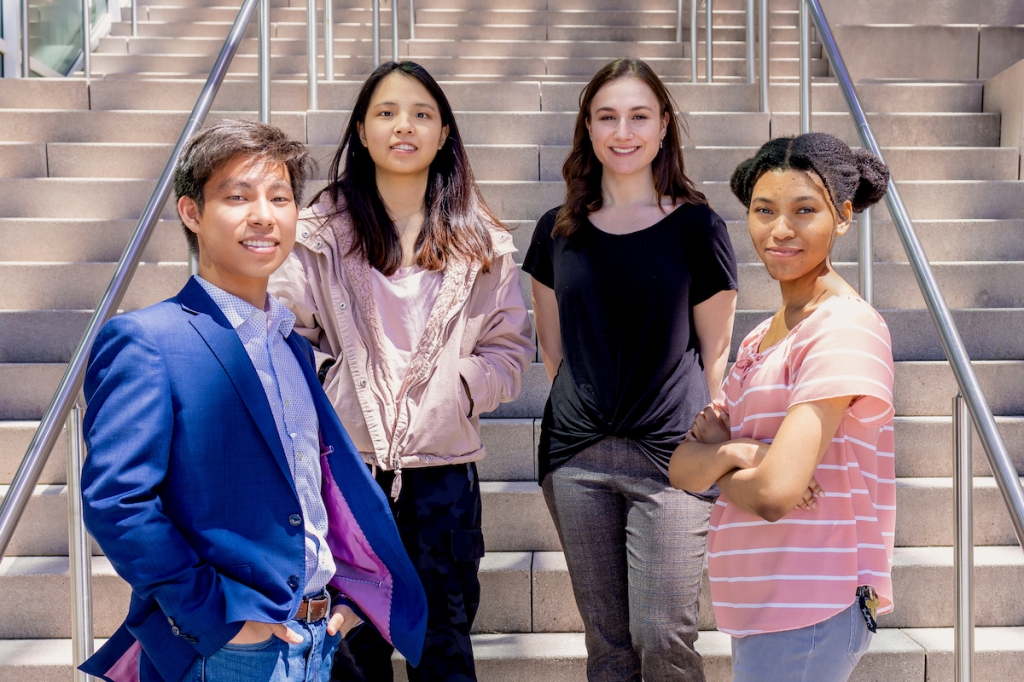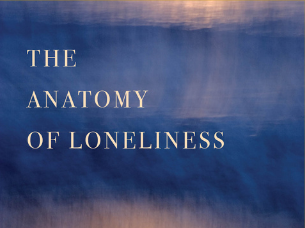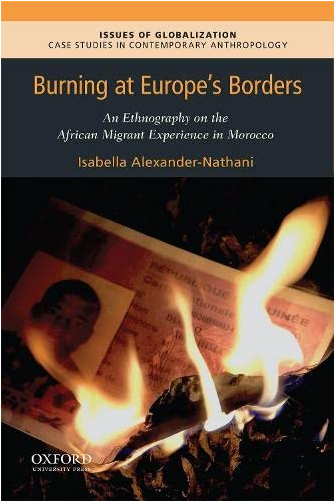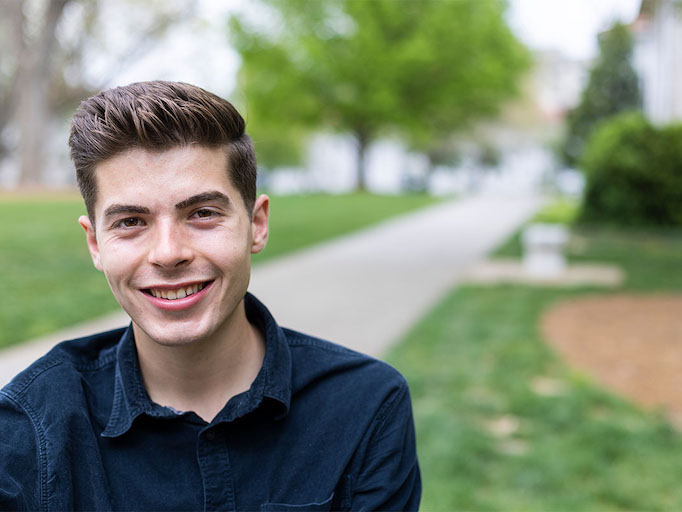Congratulations to our 2023 Anthropology honors students! We wish you all the absolute best in your future endeavors!
You can read more about this year’s honors students and their projects on our 2023 Honor Students page.

Hunter Akridge
Thesis Title: Contesting the Cultural Politics of Care: How Equitable Digital Care Platforms Reimagine the Future of Work
Rachel Broun
Thesis Title: Enacting Solidarity and Negotiating Fictive Kinship: The Legal Consciousness of Black Women Working in the Criminal Legal System
Pamela Chopra Beniwal
Thesis Title: The Effect of Commercialization, Militarization, and Stigmatization of the Breast Cancer Awareness Movement on Breast Cancer Patients
Lucia Buscemi
Thesis Title: Footprints of the Roof of the World: Navigating the Impacts of Anthropogenic Activities in the Everest Region
Naomi Gonzalez-Garcia
Thesis Title: Constellations of Un-Matter(ing) & Matter(ing) through Atlanta’s Black Spaces: Anthropological Perspectives on Housing and Relationality
Ruth Korder
Thesis Title: Detecting Human Adaptations in Populations of the Andean Highlands
Danielle Mangabat
Thesis Title: Confronting Colonial Legacies: Imagining a Decolonial Future in the Philippines through Reproductive Health
Natalie McGrath
Thesis Title: Recentering the Voices of Pregnant-People and Birth Workers; Narratives of Childbirth
Atlas Moss
Thesis Title: Vocal Recognition and Social Knowledge in captive Tufted Capuchin Monkeys (Sapajus apella)
Alvaro Perez Daisson
Thesis Title: Race-related Health Disparities in the Context of COVID-19
Tanvi Shah
Thesis Title: (Re)constructing Postpartum Depression (PPD) via Cross-Specialty Analysis and an Anthropological Lens of Subjectivity
Krithika Shrinivas
Thesis Title: Stone Tools and Sociality: Potential Effects of Conversation and Hobbies on Lithic Quality
Lizzy Wagman
Thesis Title: Genome-wide patterns of selection in pre- and post-European contact Caribbean populations
Amy Wang
Thesis Title: The Impacts of Social Media on Young Adults’ Body Images in the United States
Sam Weinstein
Thesis Title: Vocal Clues to Diabetes Mellitus: Exploring the Ethics and Tech of AI in Clinical Practice
Gracie Wilson
Thesis Title: The Culture of College Mental Health: Narratives of Stress, Value, and Belonging
Christopher Zeuthen
Thesis Title: Qualitative Examination of Veteran Perspectives on Moral Injury
